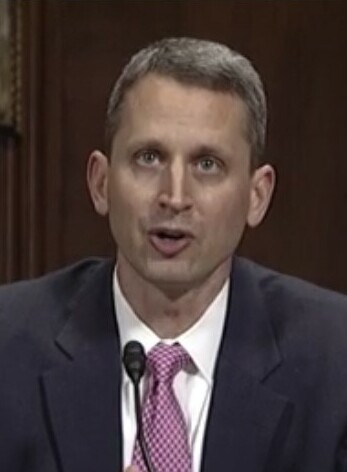Three Reactions to Braidwood v. Becerra
Last week, a federal judge in Texas dealt a blow to the Affordable Care Act’s preventative care requirements that private insurers cover services such as behavioral counseling, HPV vaccination, and pre-exposure prophylaxis for HIV/AIDS (PrEP). In Braidwood Management Inc. v. Becerra, Judge Reed O’Connor enjoined the enforcement of the preventative care coverage mandate.
Led by Braidwood Management Inc., the plaintiffs claimed that the preventive services requirements were unconstitutional, violating the Appointments Clause and the Nondelegation Doctrine. Further, they argued that requiring coverage of PrEP violates the Religious Freedom Restoration Act.
In siding with the plaintiffs, Judge O’Connor has jeopardized access to critical health care services, potentially affecting over 150 million insured Americans. The Biden administration was quick to challenge the ruling; on Friday, attorneys for the Department of Health and Human Services filed a notice of appeal.
To make sense of these developments, leading experts in health law policy analyze Judge O’Connor’s ruling below.
Doron Dorfman
Braidwood v. Becerra is mostly read as a religious freedom case that pits the Religious Freedom Restoration Act (RFRA) against the promotion of public health goals, similar to what we saw in the last few years of legal challenges to COVID-19 mitigation measures. I suggest, however, that one can read the case as an implantation of a broader socio-legal phenomenon: de-medicalization of preventive medicine.
Pre-Exposure Prophylaxis (PrEP) is first and foremost an effective health measure to prevent HIV infection and potentially eradicate the virus that has taken the lives of 700,000 Americans. Yet, ever since the U.S. Food and Drug Administration approved PrEP for preventative use in 2012, discussions among certain health professionals and lawmakers around the drug have focused on its status as a “party drug” or a “license for promiscuity.” Those opposing PrEP use are concerned by a possible behavioral response of using the drug: “sexual risk compensation.” This term refers to the expectation that PrEP users will adjust their risk-taking preferences as they may feel “too protected” and will engage in more sex with a larger number of partners without condoms. This discourse strips away the public health benefits of medical treatment and shifts focus to the patient’s individual behavior. It essentially de-medicalizes PrEP.
While such concerns about risk compensation were never scientifically proven, they have trickled not only into public opinion, as I showed in my recent article The PrEP Penalty, but also into court decisions. In Braidwood, the plaintiffs shared these same beliefs — that “providing coverage of PrEP drugs ‘facilitates and encourages homosexual behavior, intravenous drug use, and sexual activity outside of marriage between one man and one woman.’” The plaintiffs did not care to be complicit in these activities by purchasing insurance plans covering PrEP. Siding with the plaintiffs demonstrates how decisions related to public health are often influenced by moral judgment. Such a process may only occur due to the de-medicalization of PrEP.
But the reduction of PrEP use to individual behavior does not end there. Although Judge O’Connor denied standing to non-religious plaintiffs who did not want to pay higher premiums for a health plan that covers PrEP, as “neither they nor their families require such preventive care,” this claim reflects a similar process of making PrEP all about these “Truvada whores,” a derogatory term popular in the early days of PrEP, but since reclaimed. This assertion, which differentiates between “us” and “them,” undermines the bedrock of insurance: risk pooling. While all enrollees pay into a pool; inevitably, some end up receiving more health care services than others. The collective funding of the insurance system defrays these higher costs, and thus ensures a version of a social contract, where medically vulnerable and presently well individuals alike have access to the health care they need.
Though the non-religious plaintiffs did not have standing in this case, they may as well could have: the logic of their claim turns on the same de-medicalization as the religious employers granted standing. Indeed, de-medicalization, which applies not only to PrEP, but, as I show in forthcoming work, to other health measures as well, is a highly efficient weapon against preventative health care. Braidwood underscores this fact, and highlights the increasingly tenuous state of the American health care/insurance system. Already, as it stands, the Braidwood decision will further jeopardize the goal of eradicating HIV, and will lead to needless, preventable illness and suffering.
Elizabeth McCuskey
The Braidwood opinions’ Appointments Clause holdings score an initial victory against the ACA’s regulation of commercial insurance — a victory whose effects are amplified by ERISA preemption as deregulation’s silent partner in attacks on the ACA.
The scope of the Appointments Clause holding dwarfs the RFRA holding. The Hobby Lobby-style RFRA challenges effectuate a bespoke deregulation — giving certain health plans an exemption from complying with parts of the ACA mandate that offend employers’ religious beliefs, while maintaining the force of those federal rules for all other plans. But Braidwood’s Appointments Clause conclusion about the requirement to cover USPSTF-recommended services and without a copay effectuates a wholesale deregulation — excusing all commercial health plans from compliance with the federal rule.
Dismantling the federal rule then acquires significant unspoken consequences because ERISA preemption renders states unable to fully fill the regulatory void the court leaves. ERISA’s extra-broad preemption creates a regulatory space for commercial group insurance in which only federal law can operate — states can enforce insurance coverage mandates against insurance companies selling plans to individuals and employers, but cannot enforce them against employers’ self-insured plans. In the ACA, Congress finally filled some of that largely-unoccupied federal space with the requirement for commercial plans to cover preventive services and to do so without the copays that deter people from actually getting care. The district court in Braidwood kicks the federal rule out of that federal space, leaving a void.
Many states have enacted their own preventive services mandates. But thanks to ERISA preemption, those states cannot enforce their rules against the majority of their commercial insurance market: the group market covers half of people in most states, and employer self-insured plans make up 65% of the group market. Plaintiff Braidwood Management covers its employees with just such a “self-insured” plan that would be exempt from a state-level mandate, even if the company’s owner did not also get a court to recognize his religious exemption. So, if states want to take up the evidence-based, expertise-driven rules about coverage and cost of preventive services to harness their public health benefits, ERISA hamstrings their ability to enforce those rules.
The district court’s choice of a nationwide injunctive remedy in Braidwood explicitly ratchets up the disruption of its decision. But ERISA preemption silently bolsters its deregulatory effect even further.
Rachel Sachs
Another important aspect of Judge O’Connor’s ruling in Braidwood is not what it does include, but what it doesn’t: in the Judge’s nearly 30-page opinion, he offers no appreciation for the stakes of the case. A casual reader would not know that roughly 100 million Americans in any given year benefit directly from the ACA’s provision requiring access to no-cost preventive care services, or that Judge O’Connor’s choice to impose a nationwide remedy threatens to disrupt this broad access to care. Importantly, this information was introduced into the record as part of the case and was available to the judge. A group of patient organizations, led by the American Cancer Society, filed an amicus brief explaining how a nationwide ruling would “worsen[] patient outcomes, leading to preventable deaths, and creating higher long-term medical costs.” A group of medical societies, led by the American Medical Association, filed a similar amicus brief, emphasizing the court’s equitable discretion to limit the scope of its remedy in light of the potential impact on patients’ access to care.
Judge O’Connor’s choice not to grapple with or even acknowledge the consequences of his decision is in keeping with recent Supreme Court precedent that similarly brushes aside the effects of its rulings on public health, as Joshua Auerbach and Joshua Sharfstein have recently argued. As they discuss, in a number of cases last Term, the Court either avoided discussing or explicitly rejected consideration of the potential impact of its decisions. Take the COVID-19 vaccination cases as an example, in which the Court blocked a vaccination-or-test requirement for large employers as issued by the Occupational Safety and Health Administration. The six-justice majority noted that although the vaccination requirement was projected to save thousands of lives and prevent hundreds of thousands of hospitalizations, “[i]t is not our role to weigh such tradeoffs.” At oral argument, as Justice Alito asked about the possibility of granting an administrative stay, he went so far as to ask Solicitor General Prelogar whether if the Court issued such a stay, “are you going to say, well, they’re causing people to die every day?” The Court’s per curiam opinion may well have had that impact, to say nothing of the Court’s opinions last Term in Dobbs, Bruen, and West Virginia v EPA.
This effort — alternatively to obfuscate the stakes of these rulings or seemingly to avoid responsibility for the rulings’ consequences — is misguided. Even if some judges or Justices may believe that consequentialist arguments are not relevant to their reasoning in any particular case, judicial appreciation and acknowledgment of the impacts of their choices matters. As Robert Cover wrote, “[a] judge articulates her understanding of a text, and as a result, somebody loses his freedom, his property, his children, even his life.” Or, more directly, “judges deal pain and death.” Yet Judge O’Connor chose not to acknowledge the 100 million people nationwide whose lives will be impacted by his decision.
Doron Dorfman is an Associate Professor of Law at Seton Hall University Law School.
Elizabeth McCuskey is a professor at Boston University’s School of Public Health and School of Law.
Rachel Sachs is the Treiman Professor of Law at Washington University in St. Louis School of Law.






